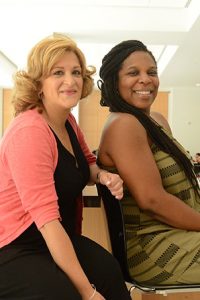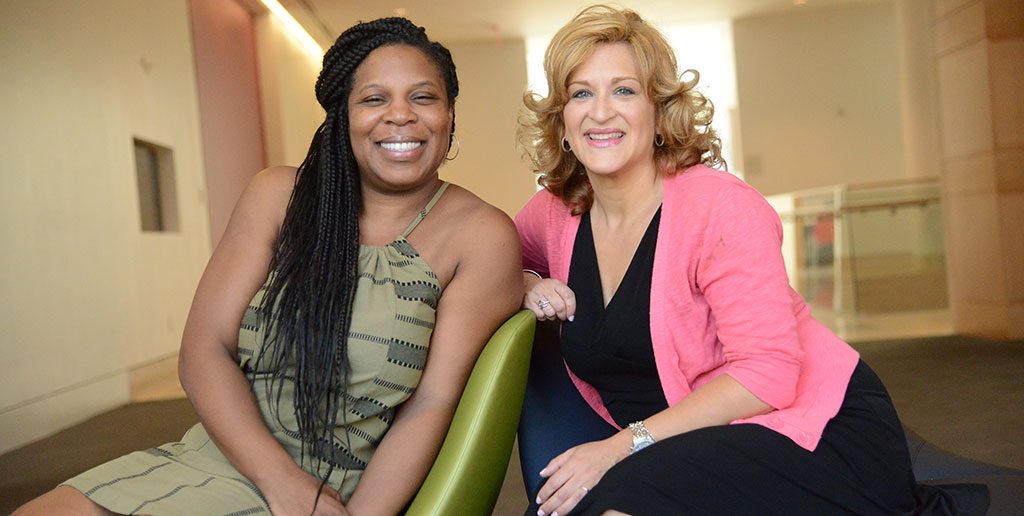On Aug. 23, 38 students will graduate from the program, while earlier this month more than 60 new students were welcomed into this year’s record-breaking cohort.
Elaine Congress, DSW, LCSW, professor and associate dean at GSS, described the program’s inception.
“The timing was right,” she said of the year-old program. “Social agencies are becoming more businesslike and businesses are becoming more socially conscious.”
The program seeks to “integrate social justice with management excellence” and primarily attracts students with a nonprofit background. It is one of the first programs in the nation jointly sponsored by two graduate schools.
Allan Luks, the director of the Center for Nonprofit Leaders, Congress, and Francis Petit, Gabelli School associate dean, designed a trimester program that allows students to earn their degree in just one year. This made the program very marketable, as similar programs in the city take two years to complete.
As Congress observed, “Time is money and these students want to get to work.”
Similar to Fordham’s Executive MBA, the degree is designed for working professionals. Each trimester, the program starts with four intensive days. The classes gather once a week thereafter. In addition, each student gets a mentor who is a professional in the field.
“These are students who want to change society at a time when most nonprofit agencies are cutting back tremendously,” said Luks. “We’re training people that want to change their field and create organizations that are financially sound.”
Congress said that 80 percent of students at GSS concentrate on clinical practice and only 20 percent concentrate on administration, and yet, the study of finance and budgeting are strategically important in heading up a nonprofit.
Graduate Gloria Vargas, who grew up with two deaf parents, has already had a full career in nonprofits working with those persons with similar afflictions. At St. Vincent’s Hospital, she worked as a staff interpreter, educator, and advocacy worker for 12 years on behalf of deaf patients. In 2010 she witnessed the closing of the hospital.
“I didn’t understand the bigger picture of how nonprofits worked or how they were managed,” she said. “The words ‘social justice’ attracted me to the GSS program because of the experiences that I had working with the deaf. I saw so many injustices.”

Vargas, who said her deaf parents were often unjustly treated by others as if they were learning-disabled, plans to use her degree to continue advocating on behalf of deaf clients. She has started writing a business plan geared towards social justice and entrepreneurship for those who have limited or no hearing.
Graduate Stephanie Francis Mack started a nonprofit called Harlem Seeds that teaches city kids where their vegetables come from. At three community gardens in Northern Manhattan, kids plant, nurture, and then eat the veggies they grow, “from seed to table.” A former public school teacher, Mack said she started the nonprofit after brainstorming with family and friends at a farm upstate.
“We didn’t know what to do or how to do it, but we knew we were passionate,” said Mack.
She said that at Fordham she realized that she knew more about running a nonprofit than she gave herself credit for, and the business component of the program proved a boon to her nonprofit. She now hopes to expand the program to include rooftop gardens.
“I walked away from the program really understanding how things have to be put together—especially financial management,” she said. “That was a big deal. They truly gave me an understanding what you need to become a sustainable organization.”
She said the student mix aided the curriculum, with some already working at well-established nonprofits and others hoping to create one. With her nonprofit already in operation, she said her master’s degree has underscored something she may have known, but had not been able to articulate.
“I don’t think I felt confident enough to refer to myself as a leader, but now I do.”
Additional reporting by Rachel Roman

